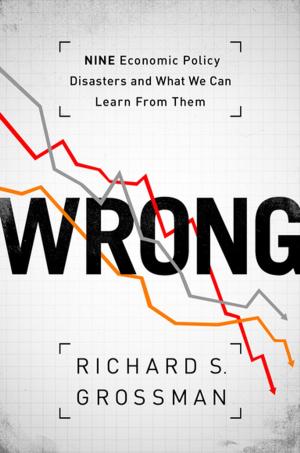Philosophy of Nonviolence
Revolution, Constitutionalism, and Justice beyond the Middle East
Nonfiction, Reference & Language, Law, Jurisprudence, International, Religion & Spirituality, Philosophy, Political| Author: | Chibli Mallat | ISBN: | 9780199394227 |
| Publisher: | Oxford University Press | Publication: | January 8, 2015 |
| Imprint: | Oxford University Press | Language: | English |
| Author: | Chibli Mallat |
| ISBN: | 9780199394227 |
| Publisher: | Oxford University Press |
| Publication: | January 8, 2015 |
| Imprint: | Oxford University Press |
| Language: | English |
In 2011, the Middle East saw more people peacefully protesting long entrenched dictatorships than at any time in its history. The dictators of Tunisia, Egypt, and Yemen were deposed in a matter of weeks by nonviolent marches. Imprecisely described as 'the Arab Spring', the revolution has been convulsing the whole region ever since. Beyond an uneven course in different countries, Philosophy of Nonviolence examines how 2011 may have ushered in a fundamental break in world history. The break, the book argues, is animated by nonviolence as the new spirit of the philosophy of history. Philosophy of Nonviolence maps out a system articulating nonviolence in the revolution, the rule of constitutional law it yearns for, and the demand for accountability that inspired the revolution in the first place. Part One--Revolution, provides modern context to the generational revolt, probes the depth of Middle Eastern-Islamic humanism, and addresses the paradox posed by nonviolence to the 'perpetual peace' ideal. Part Two--Constitutionalism, explores the reconfiguration of legal norms and power structures, mechanisms of institutional change and constitution-making processes in pursuit of the nonviolent anima. Part Three--Justice, covers the broadening concept of dictatorship as crime against humanity, an essential part of the philosophy of nonviolence. It follows its frustrated emergence in the French revolution, its development in the Middle East since 1860 through the trials of Arab dictators, the pyramid of accountability post-dictatorship, and the scope of foreign intervention in nonviolent revolutions. Throughout the text, Professor Mallat maintains thoroughly abstract and philosophical arguments, while substantiating those arguments in historical context enriched by a close participation in the ongoing Middle East revolution.
In 2011, the Middle East saw more people peacefully protesting long entrenched dictatorships than at any time in its history. The dictators of Tunisia, Egypt, and Yemen were deposed in a matter of weeks by nonviolent marches. Imprecisely described as 'the Arab Spring', the revolution has been convulsing the whole region ever since. Beyond an uneven course in different countries, Philosophy of Nonviolence examines how 2011 may have ushered in a fundamental break in world history. The break, the book argues, is animated by nonviolence as the new spirit of the philosophy of history. Philosophy of Nonviolence maps out a system articulating nonviolence in the revolution, the rule of constitutional law it yearns for, and the demand for accountability that inspired the revolution in the first place. Part One--Revolution, provides modern context to the generational revolt, probes the depth of Middle Eastern-Islamic humanism, and addresses the paradox posed by nonviolence to the 'perpetual peace' ideal. Part Two--Constitutionalism, explores the reconfiguration of legal norms and power structures, mechanisms of institutional change and constitution-making processes in pursuit of the nonviolent anima. Part Three--Justice, covers the broadening concept of dictatorship as crime against humanity, an essential part of the philosophy of nonviolence. It follows its frustrated emergence in the French revolution, its development in the Middle East since 1860 through the trials of Arab dictators, the pyramid of accountability post-dictatorship, and the scope of foreign intervention in nonviolent revolutions. Throughout the text, Professor Mallat maintains thoroughly abstract and philosophical arguments, while substantiating those arguments in historical context enriched by a close participation in the ongoing Middle East revolution.















